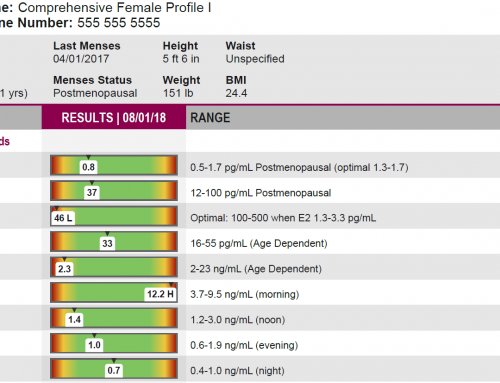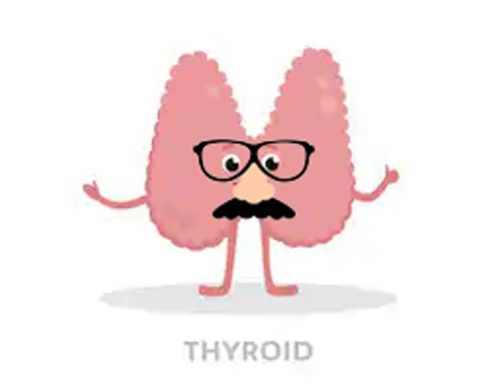by Dr. Tina Marcantel
“Normal” blood tests don’t always tell the whole story when it comes to hypothyroidism. Tina Marcantel is a naturopathic doctor in Gold Canyon, Arizona, who also serves the cities of Mesa, Gilbert, Chandler, Tempe, Queen Creek, Florence, and the greater Phoenix area.
 A number of years ago Jane, a young woman in her mid-thirties, came in to see me complaining of abnormal weight gain within the last few months. She also had fatigue and difficulty concentrating. She had been to a couple of other doctors and her blood tests seemed fine.
A number of years ago Jane, a young woman in her mid-thirties, came in to see me complaining of abnormal weight gain within the last few months. She also had fatigue and difficulty concentrating. She had been to a couple of other doctors and her blood tests seemed fine.
We ran a new test to check for TSH, free T3, free T4 and TPO antibodies. (TPO antibodies can be an indicator of Hashimoto’s thyroiditis, a condition that can lead to low thyroid symptoms). Sure enough, the other hormones were in the normal ranges but the TPO antibodies were greater than 1,000–the norm should have been less than 34! Jane was exhibiting all the symptoms of hypothyroidism but the only abnormality showing up in tests was the TPO antibodies. I sent her to an endocrinologist who told her there was nothing that could be done because the TSH, free T3, and free T4 were normal.
Jane wouldn’t settle for that, however. She read on the Internet about a doctor in another state who was treating people for thyroid conditions and she packed her bags and headed for his clinic. When she came back to see me a few months later, Jane looked like a different person. She had lost the ten pounds she had gained earlier, her energy was good, she was able to concentrate and work much better, and no longer had cold hands and feet. The physician she had seen had been willing to treat her symptoms rather than strictly relying on the usual test results. He prescribed a thyroid medication and it worked great for her.
Jane taught me a very important lesson. People who have “normal” TSH with symptomology may need to be treated with thyroid medication. The conventional treatment is to look at the TSH and treat according to that test. By recognizing the disease from the symptoms and confirming it with the proper laboratory tests, many people can get the help they really need.
After my experience with Jane I immersed myself in studying about “non-conventional” approaches to treatment for low thyroid. I attended conferences, watched webinars, and read books that detailed the importance of considering both the test results AND symptoms when screening for hypothyroidism.
Since then, I’ve seen countless patients who’ve been helped with this approach–patients who were told that their blood test results were “normal,” but who were exhibiting fatigue, weight gain, dry skin and hair, and other symptoms of low thyroid. Often the solution is simply a low dose of thyroid medication or a supplement that supports thyroid function that helps them get back to feeling well again.
To learn more about Hashimoto’s thyroiditis read Dr. Marcantel’s article,
“Thyroid Disease: Why It’s Often Missed By Your Doctor.”
For more information about our practice, including a complete list
of services and fees, visit our New Patients pages.
Interested in scheduling an appointment with Dr. Marcantel, but you’d like a little more information?
If you’re interested in becoming a new patient, you can schedule a FREE 15-minute phone consultation
with her to learn more about her services! Just give us a call at (480) 738-1647.





